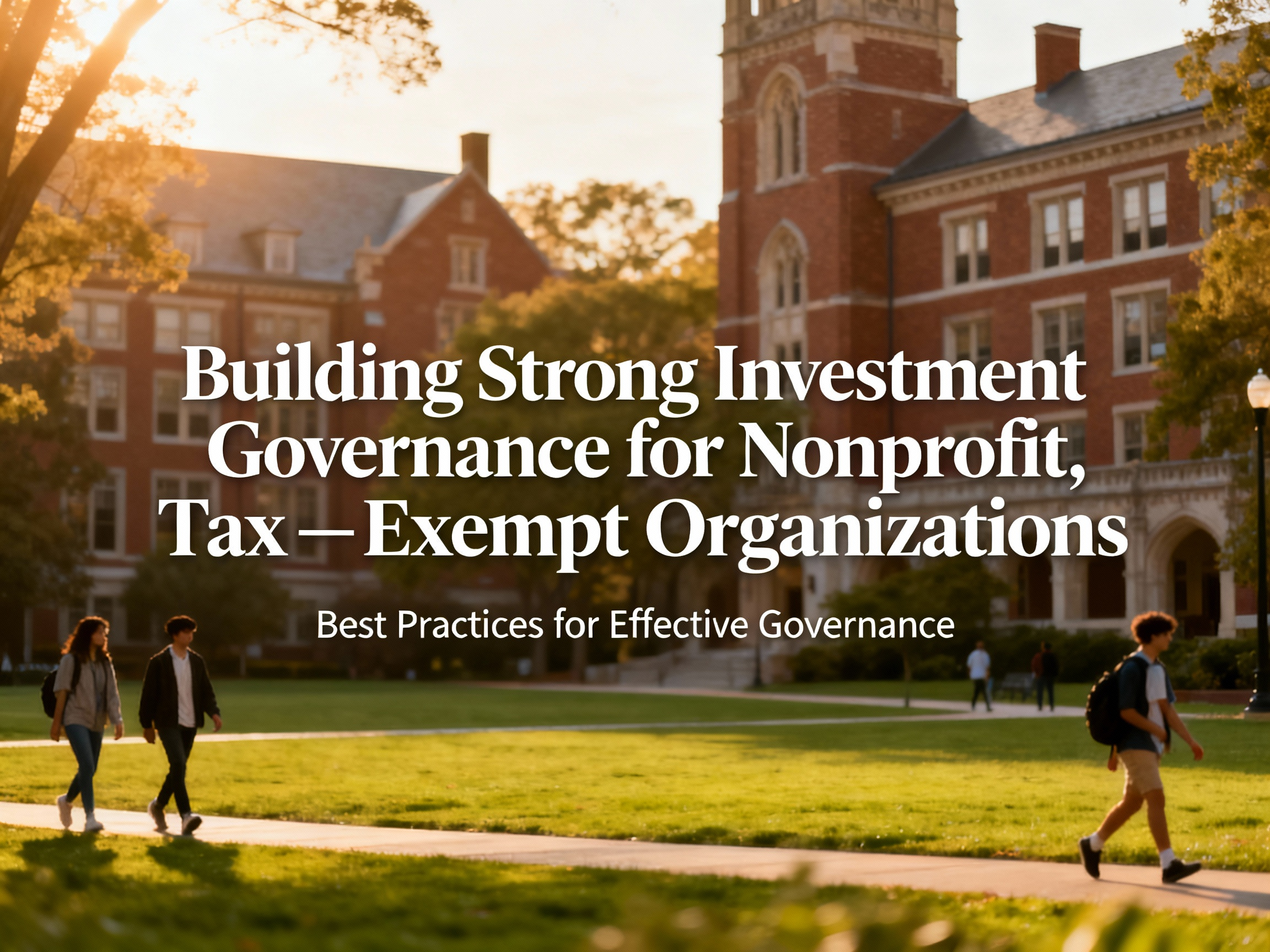In 2024, a jury found the NRA’s former CEO liable for millions in damages, following a lawsuit by the New York Attorney General alleging widespread financial mismanagement. The board’s audit committee failed to review related-party transactions and whistleblower complaints, effectively allowing executives to use the nonprofit’s assets as a “personal piggy bank” for lavish travel and suits.
These are not just headlines—they are governance failures. Breakdowns in oversight, process, and accountability can cost organizations their financial stability, their reputations, and the trust of their donors.
For nonprofit and tax-exempt organizations, financial stewardship is inseparable from mission stewardship. Endowments, foundations, reserves, and long-term investment pools do more than generate returns—they provide stability, underwrite strategic initiatives, and ensure the organization can serve its community for generations. At the heart of this responsibility lies one essential element: effective governance.









